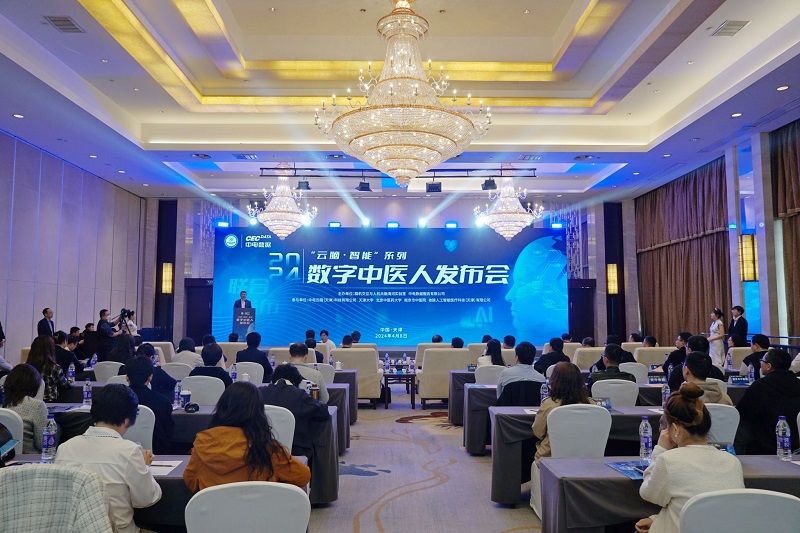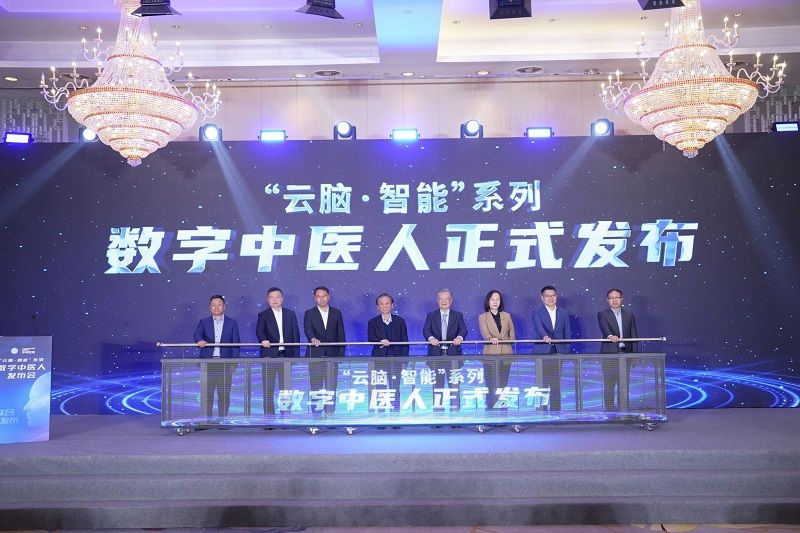Program of Digital Chinese Medicine Launched
2024-04-16
Research

On April 8, the WeChat mini program of Digital Chinese Medicine, an intelligent medical service system, was launched in Tianjin. It was jointly planned and guided by Professor Gu Xiaosong of Tianjin University, academician of the Chinese Academy of Engineering and Dean of Medical College at Tianjin University, and Professor Wang Qi of Beijing University of Chinese Medicine, academician of the Chinese Academy of Engineering and founder of Traditional Chinese Medicine Constitution Science.
The program of Digital Chinese Medicine can generate detailed reports on identifying traditional Chinese medicine (TCM) constitutions. It uses AI algorithms to analyze multi-modal features through mobile interfaces and questionnaires. Moreover, it offers online health consulting services and provides professional reference materials on constitutions and diseases like tumors. This is supported by the TCM constitution identification theory to enhance the large-scale model.
When you open the program of Digital Chinese Medicine and take a few photos of your face and tongue, you can easily receive an identification of your constitution. Additionally, the digital intelligence system provides expert information on Traditional Chinese Medicine constitution theory, illness prevention and treatment, and self-health management.

The project is based on various institutions such as the National Institute of Traditional Chinese Medicine Constitution and Prevention Research, the National Health and Medical Big Data Research Institute, and Tianjin Key Laboratory of Intelligent Traditional Chinese Medicine Diagnosis and Treatment Technology and Equipment. It utilizes a comprehensive scale to assess nine different constitution types across all population groups and implements a series of regulation and adjustment plans for these nine constitutions. By using TCM detection data to construct a digital twin of the human body, the project aims to create a mobile Chinese medical service that enables personalized self-health management in terms of constitution identification and prevention-oriented treatment.
"The project is built on an independent and private cloud platform and adopts information security from China Electronics and big data technology from China Electric Information, in an attempt to ensure the security of information and data for each user", said Professor Gu Xiaosong. Based on the team's earlier intelligent TCM four-diagnosis collection system, the Digital TCM platform further upgrades its mobile and cloud-based health management solution, featuring mobile diagnosis and portable application modes.
Professor Wang Qi said, this project, through home applications and medical linkage, introduces a new concept and model of shifting from "passively health" to "actively health." It conducts regional-level surveys of constitution distribution covering the entire population, fueling the transformation and upgrading of the preventive treatment model in TCM. Combined with Chinese methods, thinking modes, and technologies, TCM will present a new outlook of creating a health management platform benefiting all people and providing a more scientific and rational basis for the formulation of health insurance policies for the prevention and treatment of chronic diseases.
According to Professor Wan Liang, project leader and Vice Dean of the Medical College at Tianjin University, the Digital Chinese Medicine program is part of the Cloud Brain Intelligent System jointly launched by the National Key Laboratory of Advanced Medical Materials and Medical Devices and the Haihe Laboratory of Brain-Machine Interaction and Human-Machine Fusion. In the future, this system will expand to cover constitution detection data such as breath and pulse, upgrade cross-modal fusion constitution identification models, conduct correlation analysis between constitution and genetic testing data, develop a comprehensive TCM health record system, and demonstrate applications for major chronic metabolic diseases among sub-healthy populations, especially in tumor prevention and treatment.
Attendees of the event included leaders and representatives from Tianjin Municipal Government, Beijing University of Chinese Medicine, and Nanjing Municipal Hospital of Traditional Chinese Medicine, among others.
By Li Jiaqi
Editor: Sun Xiaofang
